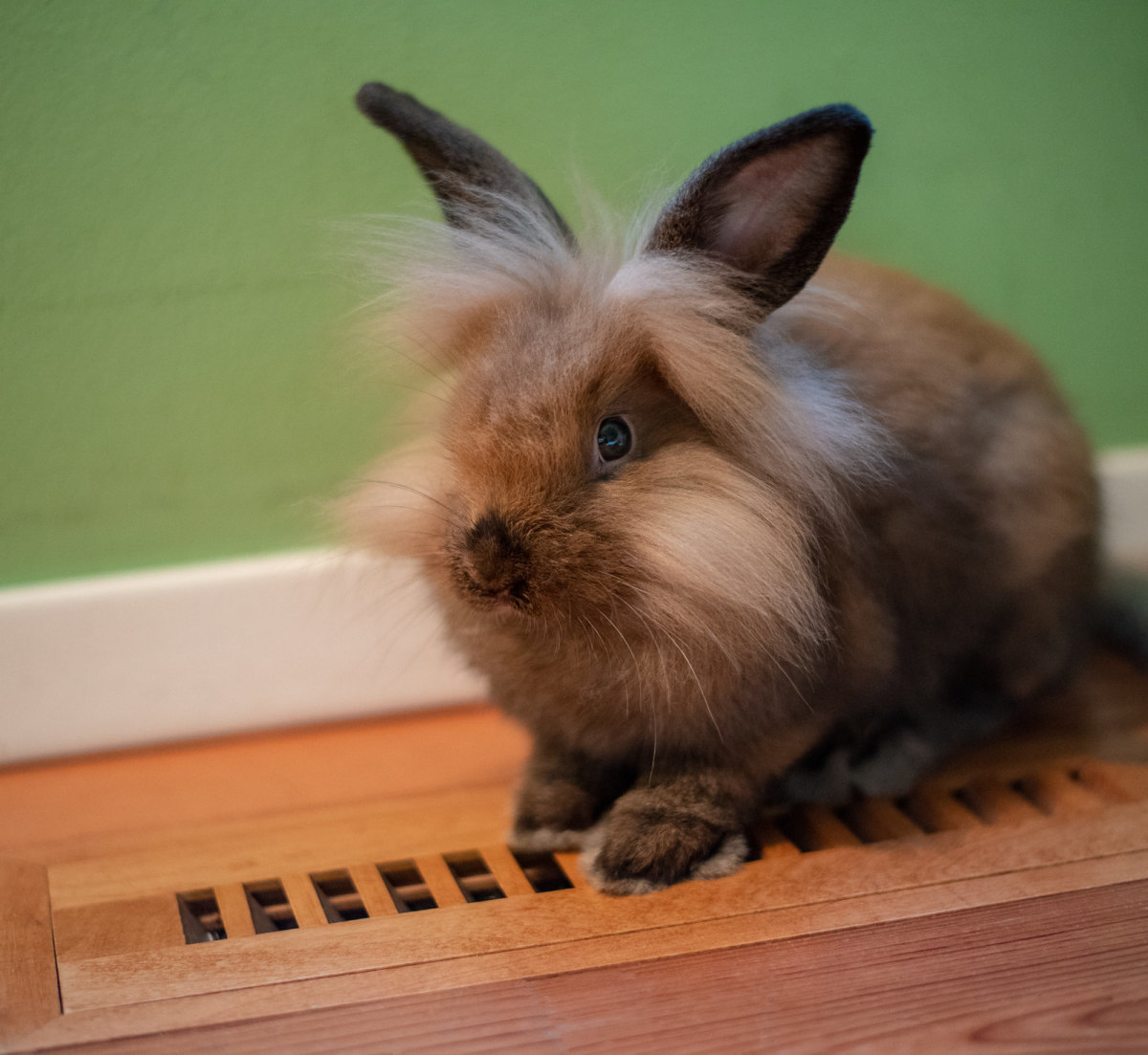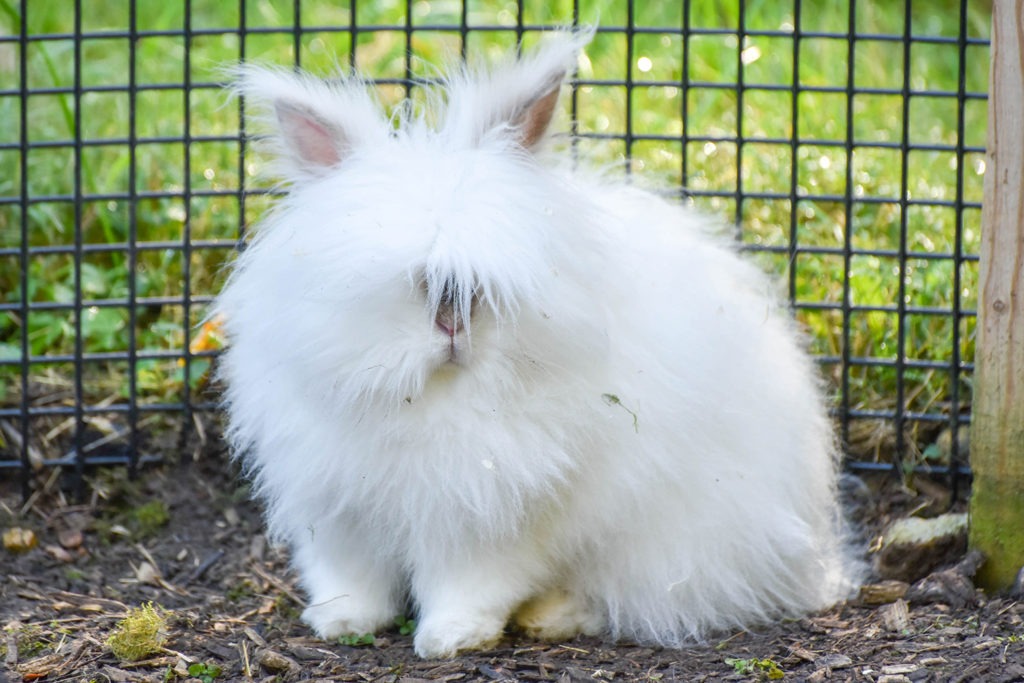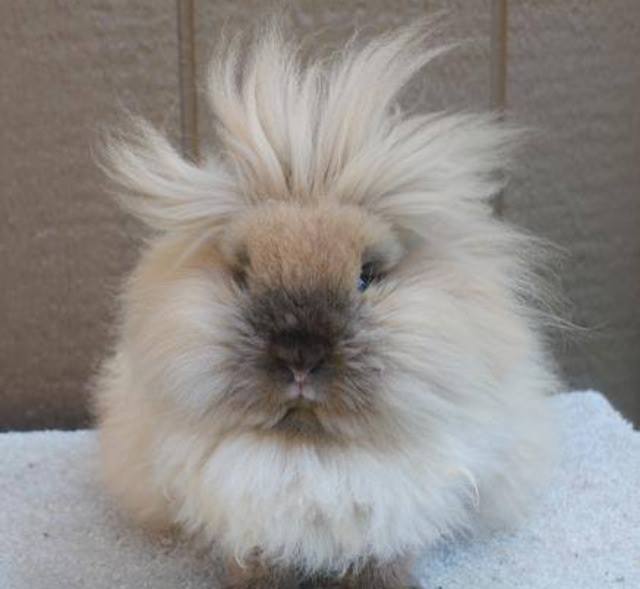
Last Updated on July 19, 2023 by Fumipets
Lionhead Rabbits are popular little pets due to their unique woolly mane, attractive look, and compact size.
Although they may be sociable and lively when handled properly, acquiring a Lionhead is not a choice that should be undertaken hastily. They may be shy and need well-balanced food as well as enough room and stimulation.
Temperament and Behavior
Although Lionhead Rabbits are popular pets, they may not be the ideal option for first-time pet owners with kids.
They’re intelligent, friendly, and lively in general, but they’re also one of the most cautious domestic rabbit breeds. They may quickly get scared, which can lead to violent behaviour.
They need a calm, stress-free environment and must be treated with caution. Gradually increase your touch with your Lionhead. Allow them to approach you on their own terms, and make sure you have a delicious treat on hand so they begin to connect you with positive experiences. Don’t pick them up too quickly, and if you do, don’t suffocate them with no means to get out.
Lionhead Rabbits are very clever animals. To avoid boredom, they need a lot of enrichment and proper stimulus. Their innate digging and gnawing behaviours need outlets. This is not only healthier for your rabbit’s overall health, but it also prevents them from picking up other, less suitable things around your home or garden.
Make sure their hutch and run are stocked with a variety of rabbit-safe toys and chew things. If they’re a house rabbit, you’ll need to divert them to suitable things and make sure the places they have access to are rabbit-proofed.

Housing the Lionhead Rabbit
Although the Lionhead rabbit is a tiny breed, it is an energetic breed that requires a lot of room to burn off its energy.
Rabbits are social creatures that thrive when they share their home with another rabbit. At least two rabbits of comparable sizes should be able to fit in your hutch. A hutch that is less than 6ft x 2ft will be insufficient.
Unfortunately, many rabbits are kept in hutches that are much too tiny for them, do not provide enough protection from severe weather, and do not allow them to engage in normal activities.
It’s also a good idea to provide a run, which should be about 8 feet long. This will be a fantastic setup if the hutch can be linked to the run.
You should keep your Lionhead out of direct sunlight and away from severe temperatures. They’re especially prone to overheating, so it’s best to keep them somewhere where the temperature doesn’t surpass 70 degrees Fahrenheit (21 degrees Celsius).
If your rabbit is kept outside throughout the winter, additional hay should be given for warmth, and they should be properly protected from rain, snow, and wind.
You should clean out your Lionhead Rabbits’ hutch and run area at least once a week, and you should also thoroughly clean dishes, toys, and other accessories on a regular basis. A filthy hutch may soon smell bad, and the accumulation of urine and excrement can cause health issues and germ development.

Diet and Nutrition
Unfortunately, many individuals are unaware of a rabbit’s dietary needs, which may result in digestive difficulties and, more specifically, dental problems.
Because rabbits’ teeth are continuously growing, they need a diet that will assist them naturally file down their teeth, preventing them from getting overgrown. All rabbits should have unrestricted access to fresh grass hay that is high in quality and fibre, as well as water. Kale and other fresh, leafy greens are also helpful.
Avoid sweet fruits unless they’re a special treat, and don’t let your Lionhead consume too many professionally prepared pellets. In moderation, they are OK, but they aren’t very fibrous, and selecting high-quality hay combinations that they like is much more essential.
Typical Health Issues
Lionhead Rabbits are susceptible to a variety of health concerns, including dental disorders caused by enlarged teeth. The following are a few of the most common:
Respiratory problems are very prevalent in Lionheads with flat features. Lionheads with brachycephalic characteristics are becoming increasingly popular, as some people believe it adds to their cuteness. Although not all Lionheads have flat faces, if they do, your rabbit is more likely to have respiratory problems, dental problems, and digestive problems. They’re also more susceptible to overheating.
Because a Lionhead has a flatter face than the typical rabbit breed, they are more prone to tear duct issues. This may result in eye infections and visual problems. To keep their eyes clean, give them a warm bath on a regular basis. You should seek veterinary assistance if you notice a chronic issue with eye boogers, tears, or irritation.

Getting a Lionhead Rabbit
When looking for a Lionhead Rabbit, make sure you go to a reputable breeder or rescue group. A poor breeder means your rabbit won’t have had the greatest start in terms of handling and socialising, and they’ll be more likely to have hereditary health issues in the future.
Going to a pet store means you won’t be able to learn as much about your Lionhead’s history, including how and where it was reared.
Lionheads come in a broad range of colour combinations, with the double-maned coats requiring more care than the single-maned type. From the moment a Bearded collie is born, a skilled breeder will be able to tell you which coat type it will have.
The American Rabbit Breeders Association is an excellent location to start your investigation.
Unfortunately, many people underestimate rabbits’ requirements, and many find up in rescue. Contact your local rescue group to see if you can provide a home for a Lionhead rabbit or another similar breed.
The House Rabbit Society maintains a comprehensive list of rabbit rescue organisations across the United States.

Litter Training
Because Lionhead Rabbits are intelligent, they typically react to litter training faster than other rabbits. Providing a separate bathroom place for your rabbit makes cleaning up their hutch simpler, and it may also be helpful when house rabbits have full access to other parts of the house.
When your Lionhead goes potty in the litter box, using a clear marker like a Clicker and rewarding them with a delicious treat may be an excellent method to let them know they did the right thing. The fundamentals of training are the same whether you’re teaching a cat or a dog.
When your rabbit is old enough, spaying or neutering them may assist to reduce spraying in inconvenient places. It’s especially crucial if you’re housing two rabbits of different sexes together.

Best Grooming Practices
Because lionheads have more hair than the typical rabbit, you’ll need to pay extra attention to their grooming routine.
To avoid unpleasant knots or matting, their coat will need to be brushed out at least a couple of times a week.
Double-mane Lionhead Rabbits have a longer mane and thicker hair around their skirts than humans (the hindquarters, hips, and tail). You should brush them every day if they have a thick double mane, particularly during their yearly moult.
A rabbit with a single mane just has longer hair around its head, ears, and chest.
If you don’t brush away the dead hairs, your rabbit may swallow a lot of their fur when grooming themselves, causing ‘wool-block,’ which may make them very sick.
Because of their fearfulness, you should progressively increase their grooming experience to reduce tension and enable them to develop good associations with the procedure. Keep the sessions brief, pleasant, and accompanied with delectable snacks.

















